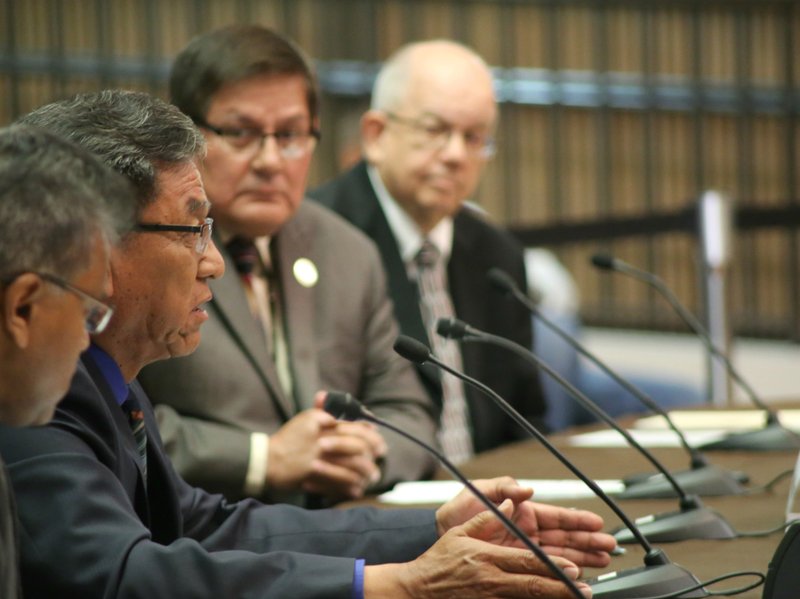PHOENIX -- U.S. Sen. John McCain has called for a criminal investigation into actions by the Environmental Protection Agency that led to a mine spill polluting rivers in three Western states last summer.
During a congressional hearing on the issue in Phoenix, McCain, R-Ariz., said EPA officials knew about the potential for catastrophe and failed to do proper testing before inadvertently triggering the 3 million-gallon spill at the inactive Gold King Mine in southwestern Colorado last August.
"What is clear now is that not enough has been done," McCain said Friday. "I've come to the conclusion that a [Department of Justice] criminal investigation is merited and must now occur."
EPA officials said it's not clear that additional testing could have prevented the accident, but they acknowledged they notified tribal officials too late.
McCain and U.S. Sen. John Barrasso, R-Wyo., head of the Senate Committee on Indian Affairs, subpoenaed EPA officials to attend the field hearing, to which they also invited Navajo and Hopi tribal leaders, and U.S. Rep. Ann Kirkpatrick, D-Ariz., to assess the EPA's response to the spill.
Navajo Nation President Russell Begaye testified before the panel about the EPA's failures to communicate and the hardships facing those affected by the spill.
Begaye said it took two days for the EPA to notify Navajo Nation officials about the spill, which affected the San Juan River that flows through the nation. They also never told officials that an estimated 5.5 million gallons of polluted water was already pouring into the river daily, Begaye said.
The farmers that live off that land need revenue as soon as possible, Begaye said, adding that there also needs to be a plan to prevent future contamination.
"They need to compensate our farmers because they are suffering," he said. "We will be living with this for the next 20-plus years."
EPA officials recommitted to cooperating with states and tribes to monitor for the estimated 880,000 pounds of heavy metals including arsenic, copper, lead, mercury and aluminum that spilled into rivers in Colorado, New Mexico and Utah.
Mathy Stanislaus, one of the subpoenaed EPA officials, said the EPA has already reimbursed the Navajo Nation $156,000 and allocated nearly $450,000 to the tribe for water monitoring.
"One of the initial lessons learned is that the EPA could do a better job communicating and working with our tribal partners," he said.
The EPA has said it plans to return to the Gold King Mine by early summer to resume preliminary cleanup work. It is also considering Superfund status for the Gold King and 47 other mining sites in the area, which would free up millions of dollars in federal funds for an extensive cleanup.
The EPA also plans to continue its work with tribes, states and cities to monitor rivers affected by the spill, especially as runoff from melting snow threatens to stir up potentially toxic metals that settled in the river bottom, though it isn't clear yet what effect the spring and summer runoff will have.
A Section on 04/24/2016

